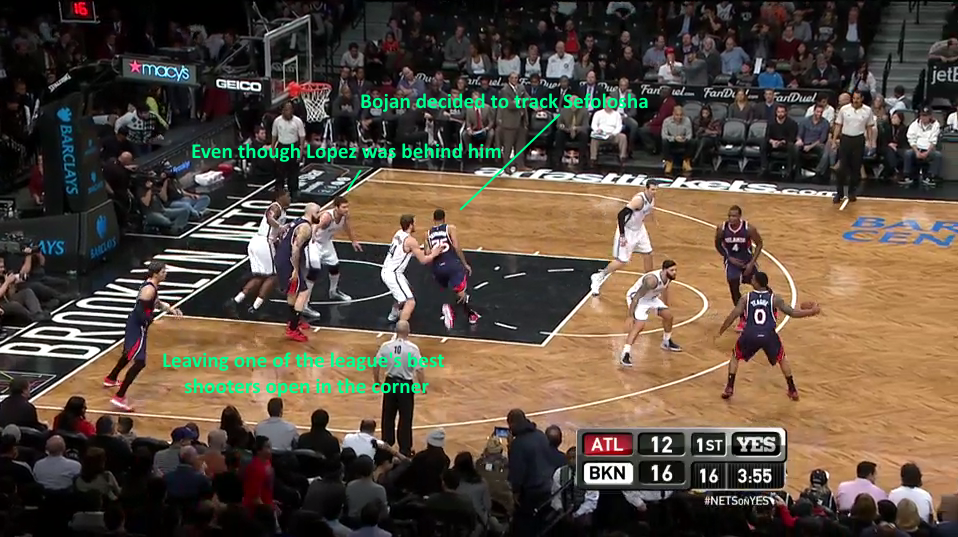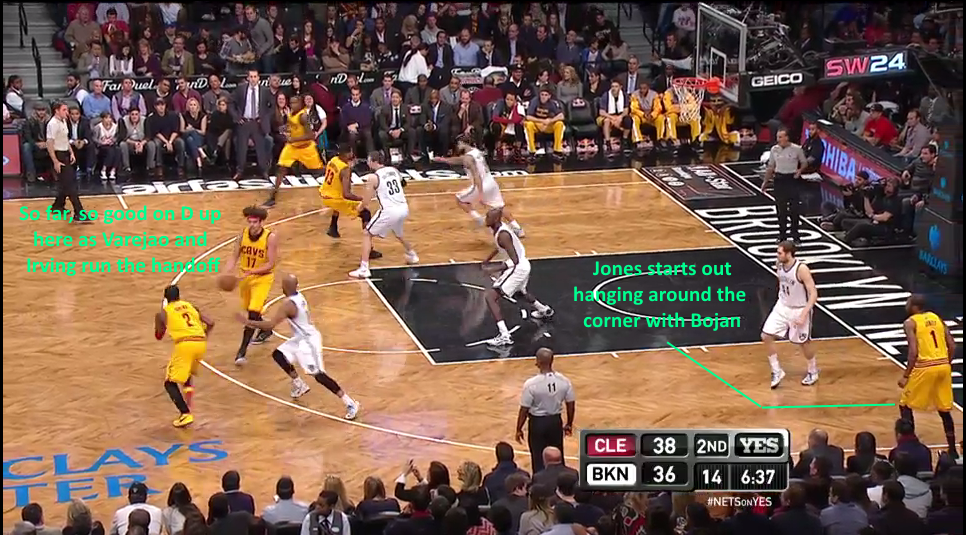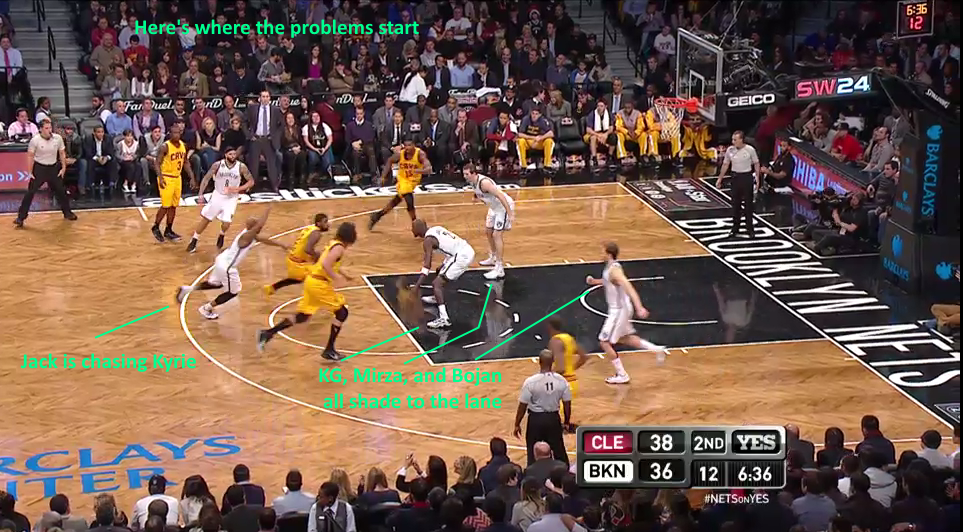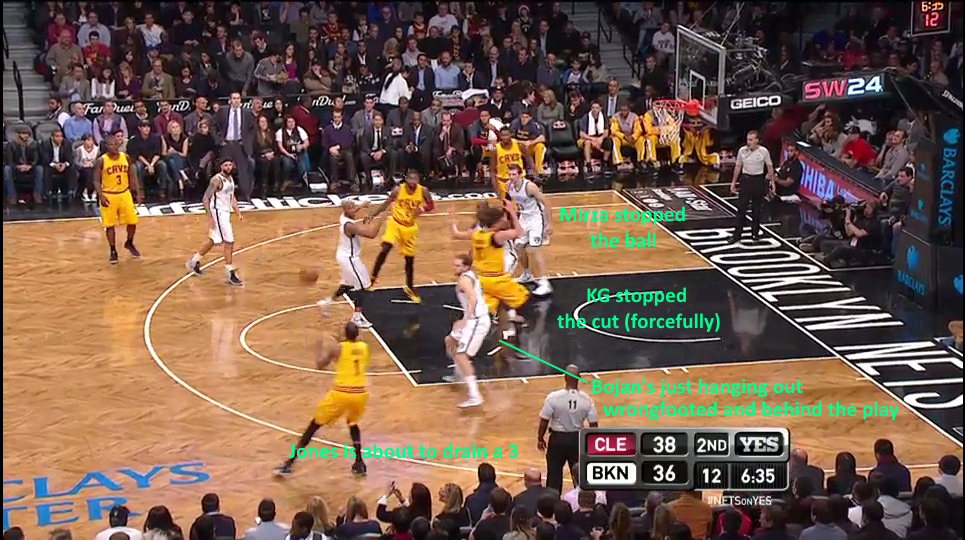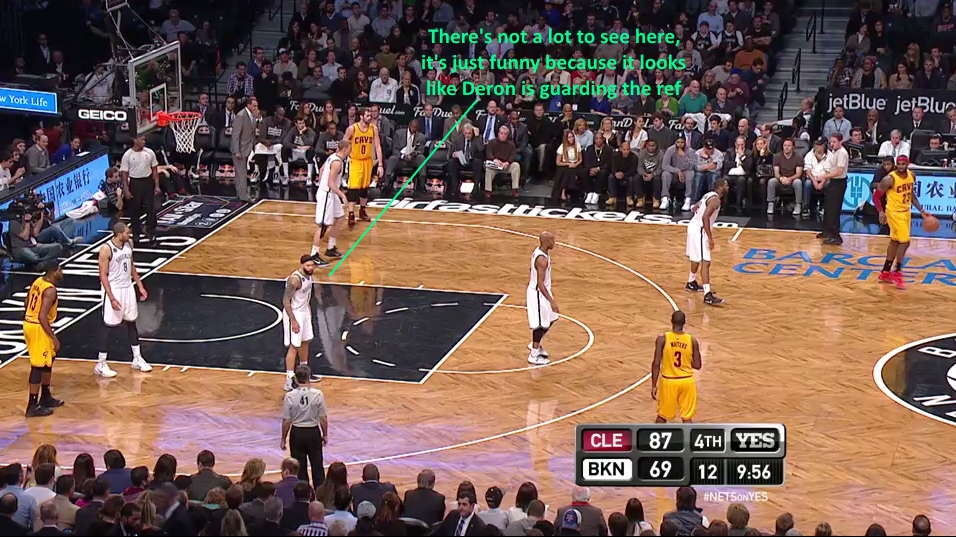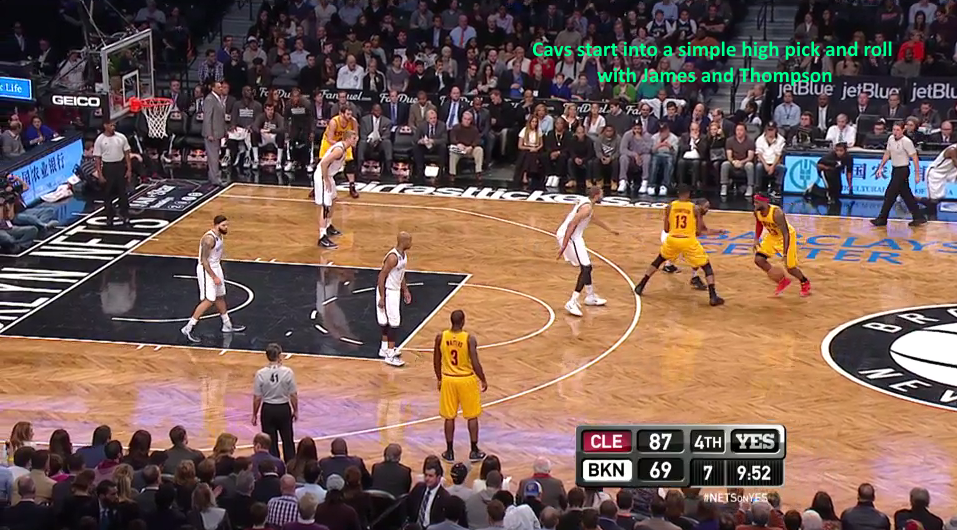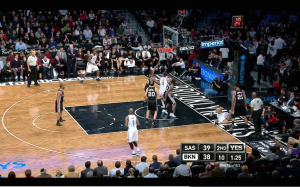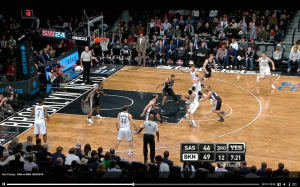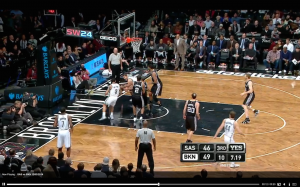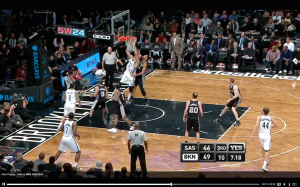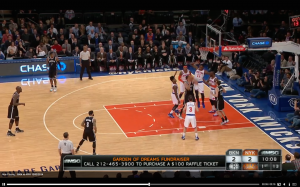Nothing grabs the attention of the sports world quite like the end. Perhaps it reminds us that the games we watch are impermanent, that even those whose dominance made them seem at times immortal are, in fact, limited. Father Time, as they say, is undefeated. For some players, the end comes in a moment of glory, like Magic Johnson’s appearance in the 1992 All Star Game. Others, less so-have we as a society decided yet to strike Shaq’s stint as a Boston Celtic from the records?
Which brings us to the 2014-15 NBA season, a season that may be taking a number of players to the end. Not insignificantly, these players are of that placekeeper generation of the early-2000s, after Jordan’s Bulls but before the ascendancy of LeBron and today’s current crop of stars, not to mention the young talent on the rise like Anthony Davis, Boogie Cousins and Steph Curry. Steve Nash’s book was closed before the season even began with a season-(and likely career) ending back injury. Kobe is determined to turn the heated debate about his legacy up to 11 as he claims records both good (the first player to ever achieve 30,000 career points and 6,000 career assist) and bad (the record holder for career misses). Wednesday night in Brooklyn, many of us thought we’d see the final chapter of another story from that generation; a rivalry between two players linked by position, by era, and by plenty of alleged bad blood: Kevin Garnett and Tim Duncan. Of course, and perhaps reflective of a rivalry that never quite became the spectacle it could have been, KG sat out the Nets’ thrilling 95-93 victory, depriving us of one more chance to watch these two old warships go at it.
It really should have been more of a rivalry than it ever appeared to be in the national media. They burst onto the scene around the same time-KG straight from high school in 1995, Duncan a four year collegiate stud in 1997, and played in the same conference for most of their primes. They seemed to get along, and then they didn’t. Garnett won MVP in 2004, on the heels of Duncan’s back-to-back reign in 2002 and 2003. Their personalities couldn’t have been more antithetical. Garnett’s theatrics and trash-talk is legendary. Equally legendary is Duncan’s stoic, vacant stare. It seems that these two were made for each other. If comic books and movies have taught us anything, it’s that ultimately, Batman and the Joker need each other. Even their nicknames fit almost too well. The Big Ticket. The Big Fundamental
So what happened? The rivalry never reached its era-defining potential. The reasons why are plenty: They only met in the playoffs twice. Garnett moved to the Eastern Conference and proved that anything is possible, finally winning his first title. Meanwhile, the Spurs, and Duncan, were in decline. There was no “RT for TD, Fav for KG” tweets, no #KGvsTD hashtags pushed by First Take, no listicle titled “21 Reasons KG is better than TD.” And ultimately, when it comes to legacy, there was no contest. Duncan had the good fortune to find himself the cornerstone of one of the most successfully run sports franchises of all time, found stability in a once-in-a-lifetime coach, a front office that hardly ever screws up and Hall of Fame teammates. Garnett didn’t have those luxuries. Duncan’s five titles eclipse Garnett’s one. And while Duncan is in the midst of yet another title run where many have picked the Spurs as prohibitive favorites, Garnett’s part of a squad that isn’t even guaranteed to make the playoffs. So what happened? Father Time, as they say, is undefeated.
That’s not to say there was the slightest bit of love or competition lost between the two. There are rumors of a Mother’s Day game where Garnett’s infamous trash-talking went too far. As Stefan Bondy of New York Daily News mentions, it might haveve all started with that one push to the back of the head (and I encourage you to read the whole article-it’s a fantastic retrospective of the rivalry):
“Both came into the league as ‘the next big thing,’ so that started the fire between the two from jump street,” former Spurs forward Malik Rose, who played eight seasons with Duncan, wrote in an email. “But things went to the next level when KG hit Duncan in the head. … Tim didn’t retaliate physically but the second half he abused KG and the Wolves. Didn’t say a word to him but let his game do the talking.
“After that, every game they played became a war. They relentlessly went at each other and always had great games against each other. Don’t know if Tim liked or disliked him. He never said anything about him but he always had his guard up and went for blood when he saw KG.”
In his 2012 profile of Duncan, Sports Illustrated’s Chris Ballard addressed the two’s relationship in even stronger terms:
Duncan hates Kevin Garnett. Hates him the way liberals hate Sean Hannity. This information comes from very reliable sources, who talk about how KG has made a career of trying to punk Duncan, baiting him and slapping him and whispering really weird smack into his ear. They talk about how funny this is, because the worst thing you can do as an opponent is piss off Duncan. Then, as Malik Rose says, “he f—— destroys you.”
And so, as we consider the legacy of these two, some light is finally being shed on what seems to be one of the NBA’s most heated, and yet quietest, rivalries. Indeed, they did seem to bring out the best in each other, with Duncan averaging 19 points and 12 rebounds against Garnett, who averaged nearly 20 and 10 himself. In this regard, Garnett accomplished something seemingly no other player in the NBA could pull off, something worth noting, even though it probably won’t end up on his Hall of Fame plaque: he managed to draw the ire of the league’s most legendary stoic, transforming Duncan from an efficient machine to HAL 9000.
Speaking of space, those of you who have seen Interstellar are probably by now all too familiar with Dylan Thomas’ “Do Not Go Gentle Into That Good Night,”:
Do not go gentle into that good night,
Old age should burn and rave against close of day;
Rage, rage against the dying of the light.
Two players forever linked, first by rivalry, now, by a common foe. Father Time stands waiting, as does the end, while Duncan and Garnett continue to burn and rave, each in their own style.
